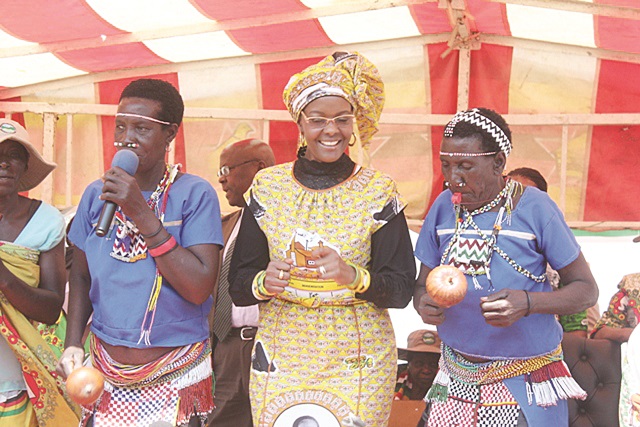Zim, SA agree to build highway clinics

From Pamela Shumba in Victoria Falls
ZIMBABWE and South Africa yesterday signed a health Memorandum of Understanding (MoU) which will see the two countries opening clinics along the Chirundu-Beitbridge-Johannesburg highway for the treatment of communicable diseases.
Health and Child Care Minister Dr David Parirenyatwa and his South African counterpart Dr Aaron Motsoaledi appended their signatures on the document at the ongoing 67th World Health Organisation (WHO) regional committee meeting for Africa in Victoria Falls.
The MoU will see the neighbouring countries co-operating in prevention, control and surveillance of communicable diseases as well as join forces in dealing with issues of blood transfusion, human resource development, malaria, HIV and Aids, tuberculosis and research.
Speaking after the signing ceremony, Dr Parirenyatwa said the MoU was a welcome development as it would improve health delivery in the country.
“We welcome this agreement because South Africa and Zimbabwe are really interdependent in many areas and clearly the creation of a partnership in health, research, regulation and training in our institutions is part of this co-operation,” he said.
Dr Parirenyatwa said the country would co-operate with “the comprehensive agreement.”
He said the MoU reignites previous attempts towards a similar arrangement which was, however, at Sadc level.
“The previous agreement was not enforced in a proper way because it was like a translation of Sadc protocol on health more than a South Africa/Zimbabwe agreement hence it was a bit weak. Now it’s specific and rigorous,” said Dr Parirenyatwa.
He said the MoU would also build capacity and enhance transfer of technology on usage of traditional medicines in both countries.
“I am particularly keen on the issue of specialised medical care and health services including patient referrals. This we need to really explore and see how it can benefit both countries,” said Dr Parirenyatwa.
Dr Motsoaledi concurred saying the MoU would assist is strengthening and harmonising treatment guidelines, procurement of medicines as well as sharing of information and experience, among others.
“We have signed a collaborative agreement between the department of health in South Africa and the department of health in Zimbabwe because the agreement we had before which was signed in 2009 lapsed in 2014. So this is a new agreement which has been finalised,” he said.
Dr Motsoaledi said priority areas include prevention, control management and surveillance of communicable diseases and conditions.
“On issues like prevention control and management and surveillance of communicable diseases it is common sense that this should happen because both South Africa and Zimbabwe are members of Elimination-8 countries.
“On the issue of HIV and Aids cross border initiative, you are aware of the link between South Africa and Zimbabwe especially with trucking,” said Dr Motsoaledi.
“Zimbabwe is our gateway to the rest of Africa in terms of trucking routes and so part of the this initiative is to put up cross border clinics along the way so as to treat patients who are truck drivers to help them on issues of HIV and Aids.”
The MoU will also look into cross border malaria initiatives on either side of the Limpopo River, shared blood transfusion programmes and tuberculosis.
@pamelashumba1











Comments